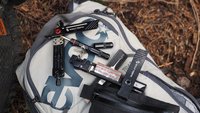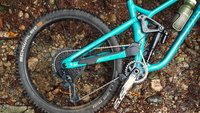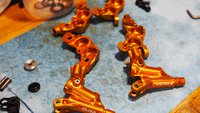I have never changed bars because of a concern about failure, but I am a chronic bar swapper, trying to find a perfect fit.
I'm also a mechanical engineer, and do a lot of work with aluminum fatigue. I can't guess about how aluminum handlebars are engineered, but aluminum does not have a fatigue limit, so it will eventually fail under very low cyclic loads (e.g. normal riding). That said - I would guess anyone designing bars is running FEA on them and has a life criteria (number of stress cycles to failure). Any reputable bars are also going to pass ISO 4210-5, which is the ISO spec for "bicycle steering equipment." Part of that standard is a fatigue life test on a bar, which is usually to 10 million stress cycles (unloaded -> loaded -> unloaded under the force generated by a "severe user").
Short story: yes, aluminum bars will eventually fail, but it will probably take a long time unless you are riding pro-level DH all day every day. If you want to be safe, replace them once a decade; 3 years seems very short given that there are a lot of older bars out there and they do not fail if you look at them wrong. If you damage the bar in a crash (visible gouges, which are stress risers and will decrease the fatigue life in that spot) or get hit by a car (forces much much higher than the bar is designed for) then I would replace them.








